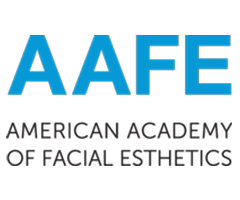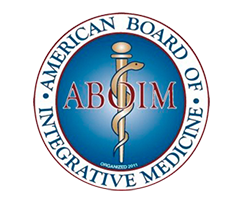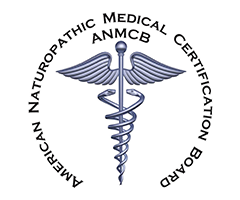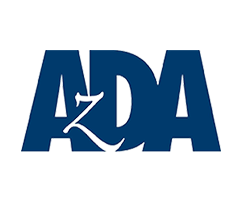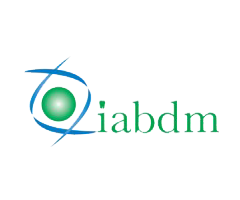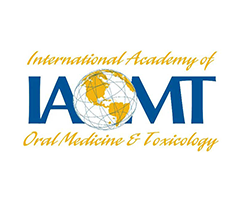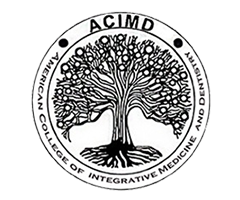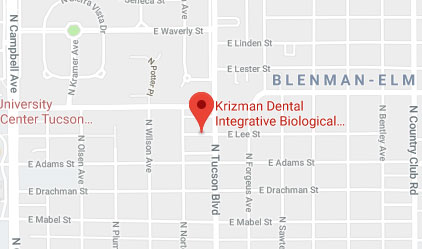Call
520-326-0082
or E-Mail Us
1601 N. Tucson Blvd. Suite #35, Tucson, AZ 85716
Book An Appointment*Only applicable for existing patients
Get Directions
Frenectomy for tongue and lip ties Tucson, AZ
 Difficult breastfeeding is a common frustration, with several potential causes. One of the most common is a condition known as tongue tie or lip tie, which inhibit a baby’s ability to latch. Fortunately, this is easily corrected with a frenectomy, which is a simple oral surgery available at Tucson Biological Dentistry in Tucson, AZ.
Difficult breastfeeding is a common frustration, with several potential causes. One of the most common is a condition known as tongue tie or lip tie, which inhibit a baby’s ability to latch. Fortunately, this is easily corrected with a frenectomy, which is a simple oral surgery available at Tucson Biological Dentistry in Tucson, AZ.
What is a frenectomy procedure?
Inside the mouth, there are small tissue bands, known as frena. They are found inside the lip and under the tongue. When healthy, they both support and limit movement. However, it is common for a baby to be born with an abnormally thick or tight frenulum, which can cause discomfort and problems nursing. If not corrected, it can inhibit speech development. This condition is commonly known as tongue tie or lip tie. Frenectomy is a very minor oral surgery that removes excess tissue, restoring proper functionality of the frena.About tongue tie
 When the frenulum below the tongue is too tight, its mobility is limited. You might notice a heart shape or cupped appearance when the baby’s tongue is lifted. A child with this problem has difficulty getting his or her tongue under the nipple when nursing, which is necessary to create suction.
When the frenulum below the tongue is too tight, its mobility is limited. You might notice a heart shape or cupped appearance when the baby’s tongue is lifted. A child with this problem has difficulty getting his or her tongue under the nipple when nursing, which is necessary to create suction.
In older children, tongue tie may interfere with chewing, because moving food around the mouth may be difficult. it can also cause articulation problems, meaning the child may not properly pronounce words.
About lip tie
 The lip is not able to move freely when the frenulum behind it is too stiff or thick. This can prevent an infant from flanging the upper lip when nursing. Additionally, the upper lip might appear unnaturally taut or stiff.
The lip is not able to move freely when the frenulum behind it is too stiff or thick. This can prevent an infant from flanging the upper lip when nursing. Additionally, the upper lip might appear unnaturally taut or stiff.
As teeth erupt, untreated lip tie can increase the risk of cavities. That is because milk becomes trapped behind the lip, effectively holding it against the teeth. When the frenulum affects the palette or is attached too close to the ridge, it can impact tooth development. This condition sometimes causes a gap between the front teeth, known as diastema.
Does your child need a frenectomy?
It is normal to see the frenulum below the tongue or inside the lip when you look in a baby’s mouth. This connective tissue is naturally present and usually not problematic. In some cases, even an infant with tongue or lip tie does not experience negative symptoms.
There are two important questions to consider when determining if frenulum is causing problems:
- Is the baby having difficulty getting enough milk?
- Is nursing uncomfortable for mom?
If the answer to either of these questions is “yes,” then it’s time to visit your pediatrician or lactation consultant or visit our office for an examination.
Symptoms of tongue or lip tie
When the mother is breastfeeding, her and the baby may exhibit symptoms. Infant’s symptoms:- Inability to suckle a pacifier or bottle
- Chewing on, or “gumming,” the nipple when nursing
- Needing to eat more frequently than normal
- Poor weight gain
- Symptoms of reflux, colic, or both
- Acting frustrated when nursing
- Falls asleep or loses grip when nursing
- Generally poor latch when feeding
Mother’s symptoms:
- Mastitis or plugged ducts
- Incomplete drainage of the breast
- Discomfort to extreme pain when the baby tries to latch
- Blistered, bruised, or cracked nipples
- Blanched, flattened, or creased nipples after nursing
About the procedure
Laser frenectomy is typically a very straightforward, uncomplicated and fast procedure. Dr. Krizman and her team make every effort to deliver comfortable care for patients of all ages, with a special emphasis on gentleness when treating infants. Before beginning treatment, we will apply a numbing gel topically to minimize discomfort.We perform the procedure in our dedicated laser treatment room, and it takes just a few moments. Your child is returned to you immediately after treatment. You are free to bottle-feed, nurse, cuddle, or otherwise comfort your baby.
The procedure is well tolerated and quick healing for most babies, though some crying, and fussing is normal. In some cases, there may be a small amount of bleeding, which is harmless. However, you should be aware that infants who inadvertently swallow a bit of blood might have brown stools or spit-ups.
The benefits of laser frenectomy, as opposed to other surgical techniques, include:
- Less tissue trauma than electrosurgery
- Less bleeding than scissors (sometimes no bleeding)
- Targeted tissue is removed completely
- Local anesthetic injections are not needed
- Better visibility facilitates enhanced precision
- Fast and efficient
Post treatment care
We recommend natural treatments to control pain. This may include Hyland’s Teething Gel, Orajel Naturals, or Arnia. For children over six months of age, you can also use ibuprofen or Tylenol.Recovery is generally fast, because oral tissues can heal very quickly. However, that rapid healing can cause reattachment, resulting in new mobility limitation and a return of symptoms. In order to prevent this, you will need to perform simple stretching exercises with the infant.
Begin with clean hands. Optionally, use coconut oil (a natural anti-microbial and anti-inflammatory) during stretches. Position the baby on your lap, with his or her feet pointed toward your knees and head toward your hips. We recommend making a fun game of it or singing as you perform stretches.
Perform the following stretches six times daily, no more than six hours apart for three weeks. Continue for one additional week, with decreasing frequency.
- Position your finger under the lip, then carefully raise it until you feel “bump” resistance. Move it gently in a sweeping motion from side to side. Perform five repetitions.
- Place both of your index fingers under the baby’s tongue and lift. Be careful not to move it backwards. Gently move the tongue upward as far as possible and hold for two full seconds.
- Use one index finger to lift and prop the tongue, while placing the other index finger in the center diamond-shaped area. Separate healing tissue with a side-to-side motion, sweeping upward.
- Encourage the infant to suck your finger. Once he or she latches, have a “tug-of-war” game. This helps build strength.
- Slowly move your finger along the baby’s gumline. The goal is for the baby to follow your finger with his or her tongue.
Follow-up treatment
Although complications are rare, it is important to have a follow-up examination and ensure that healing is trouble-free. Dr. Krizman believes in integrative medicine and a coordinated team approach. She will see your baby one week after the procedure for a check-up, and she advises seeing a lactation consultant prior to and after treatment.Why choose Tucson Biological Dentistry
Dr. Krizman and her team strive to blend the benefits of advanced technology, biological dentistry, and patient-centric general dentistry. In addition to multiple degrees, board certification, and licensure, Dr. Krizman’s credentials include motherhood. With two breast-fed children, she fully understands the frustrations, pain, and concerns that accompany breastfeeding problems.If you have concerns about tongue tie and lip tie, or if frenectomy was recommended by your lactation consultant or pediatrician, give us a call at 520-326-0082.
New Patient Forms
Testimonials
Tucson Biological Dentistry
 Lynn R.
Lynn R.
Rating: 5
 Top notch staff and services. I'm so happy to have found Dr Krizman and her team of highly skilled professionals who are genuinely interested in helping people with their dental and overall health. They treat the whole person and use the latest technology and techniques to do this. I feel well cared for in each visit.
Top notch staff and services. I'm so happy to have found Dr Krizman and her team of highly skilled professionals who are genuinely interested in helping people with their dental and overall health. They treat the whole person and use the latest technology and techniques to do this. I feel well cared for in each visit.

Read More Reviews



